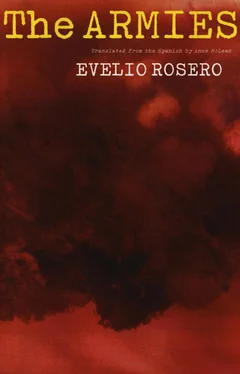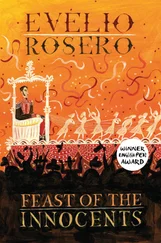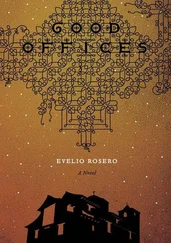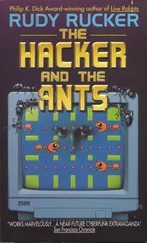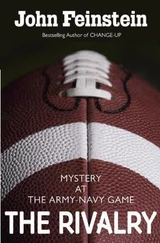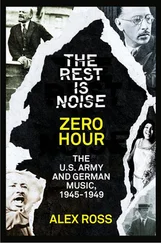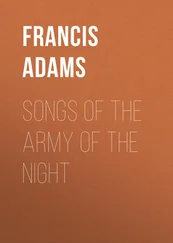“What can one say, then, when it comes to the sermon?” the Father asks me, his hands open, eyes wide. “Anyone can accuse us of whatever they like, merely for appealing for peace, appealing to God,” and, with that, as if he decided on it at the last moment, like someone making up their mind to take a short stroll, he leaves the presbytery with me, tells the sacristan to lock the door, to wait for him. “I’ll only be a minute,” he says, as she stares at him in terror.
We start down the steps of the presbytery, in watchful silence; what have we not revealed? From the middle of the plaza a slow group of men come up to say hello, and the Father stops; he wants to carry on the conversation with me, but the arrival of his parishioners will prevent it; he shrugs, makes a vague gesture and carries on down the slope beside me; he attends to the men with a comforting smile, without a word; he listens to them all with equal interest; some are from this town, others from the mountains: it is not advisable to stay in the mountains when confrontations draw near; they have already hidden their children in friends’ houses; they have come to find out what awaits us; neither the Mayor nor his spokesman is in the town hall; there is no one in the offices of the municipal council; where are they? What are we going to do? How long will it last?
The uncertainty is the same for everyone; Father Albornoz replies, spreading his arms; what can he know? He speaks to them as in his sermons, and maybe he is right, putting oneself in his place: the fear of being misinterpreted, of ending up accused by this or that army, of annoying a drug trafficker — who can count on a spy among the very parishioners who surround him — has turned him into a concerto of faltering words, where everything converges in faith: pray to heaven in the hope that this fratricidal war does not reach San José again, may reason prevail, may Eusebio Almida be returned, another innocent sacrificed. yet another, Monseñor Rubiano has warned us that kidnapping is a diabolical reality, faith in our creator, he exhorts us, and raises his index finger, after darkness comes the light, and, something truly absurd, which nobody understands straight away, but everyone listens and to and accepts because there must be a reason for the Father to say it, he announces that the Divine Child has been named this morning as the national religious figure, that our country remains consecrated to the Christ Child, we must pray, he insists, but in fact he does not say a prayer and no one seems prepared to go along with the idea.
Mauricio Rey is also among those who approach. He tells me — for a change — that my wife is looking for me.
“She asked me if I’d seen you,” he says. “I told her I’d just seen you at the Brazilian’s house. That’s where she went.”
As I am about to take my leave I see, diagonally opposite us, down below, the first soldiers appear, in flight; everyone else has seen them too and falls silent, waiting: every gaze converges on that point. The soldiers do not seem to have arrived in an orderly fashion, as they had left, but rather it seems as if they are being chased; they take cover in different places, ducking down at the same corner they have just arrived at, taking aim.
Now I see, around me, faces suddenly unknown — although they belong to people I know — exchanging horrified looks, crowding together unawares; there is a faint clamor that seems to arise from deep down in their chests.
Someone mutters: Shit, they’re back .
The soldiers stay alert and still; there must be twelve or fifteen of them; none have turned to look at us, to recommend anything, as on other occasions; at that moment we hear bursts of gunfire, explosions, but still outside of town. A murmur of cold admiration runs up our spines — loud now, full — these shadows I see around me, the same or worse than me, engulf me in a whirl of voices and faces distorted by fear; I see in a flash the silhouette of Father Albornoz fleeing to his presbytery, as fast as a deer; an ambulance appears at the same corner, holes all along its flank, but moving at a good speed, and disappears in the direction of the hospital behind a dust cloud; other soldiers have made their entrance at the top corner, and they shout to those below, in haste; the shots, the explosions, intensify, close by, and still no one knows for certain what part of town they are coming from, where to run to? All of a sudden they stop and are replaced by a silence like breathing; the combatants take up their positions, and we, where to go?
At that moment the Captain’s jeep drives up noisily, bouncing over the stones of the plaza: Berrío leaps out of it and looks at our group, will perhaps order us to go home, to anywhere under cover; he is pale, dishevelled, he opens his mouth, but without a sound, as if swallowing air; several seconds pass like that.
“Guerrillas,” he shouts all of a sudden, pointing at us, “you are the guerrillas,” and continues walking up toward us.
His face was disfigured with rage, or was he going to cry? In one moment, as if catapulted by bitterness, he reached to his belt and drew his pistol. Days later we found out from the newspaper that his attempt at freeing the hostages was a failure, that six of his men were wounded, that they were “waylaid” by a recently dynamited road, a trail planted with landmines. Does that justify what he did? His temperament was well known, Berrío the nutter , his men called him behind his back. He aimed at the group and fired; someone fell beside us, but nobody wanted to know who it was, all of us hypnotized by the figure who still had us in his sights, now from a different angle, and was shooting, twice, three times. Two fell, three. The soldiers were surrounding Berrío now, in time, and he put his pistol in its holster and turned his back, jumping into the jeep and retreating from the plaza, further back into town, in the same direction the ambulance had gone. I thought Father Albornoz had been quite right to flee. There was no time to ask among ourselves, to corroborate that it was true and not one of so many ridiculous things that happened: in less than five minutes the ambulance erupted into the plaza and pulled up beside us.
They began to put the wounded inside, the last of whom was Mauricio Rey, I discovered, unable to believe it; he seemed drunker than ever.
“I’m not going to die,” he said to me. “I’m not going to give them that pleasure.”
We all ran now, in different directions, and some, like me, left and came back to the same place, without a word, as if we didn’t know each other. That was when I remembered Otilia and stood still. I looked around. A tremendous explosion was heard at the edge of the plaza, at the very heart of town: the greyish cloud of smoke faded and now I saw nobody; only a dog came out of the dust cloud, limping and howling. I looked for the men again: no one was there. I was alone. Another explosion, a louder echo still swayed in the air, on the other side of the plaza, toward the school. So I headed for the school, sunk in the worst premonition, thinking that only there could I find Otilia, in the place most threatened by the combat, the school. If Otilia had thought to look for me at the presbytery, why would she not go to the school?
“Where are you going, profesor ?” Señora Blanca shouted to me from the half-open door. I could only see a fraction of her white, shaken face. “Come and hide, but hurry.”
I approached the presbytery, undecided. The shooting intensified, far and near. Now a group of soldiers ran past a few meters from me. One of the soldiers, who seemed to be running backward, bumped into me, banging my shoulder; he made me stumble; I was about to hit the ground. This is how I arrived at the wide-eyed, white face.
Читать дальше
